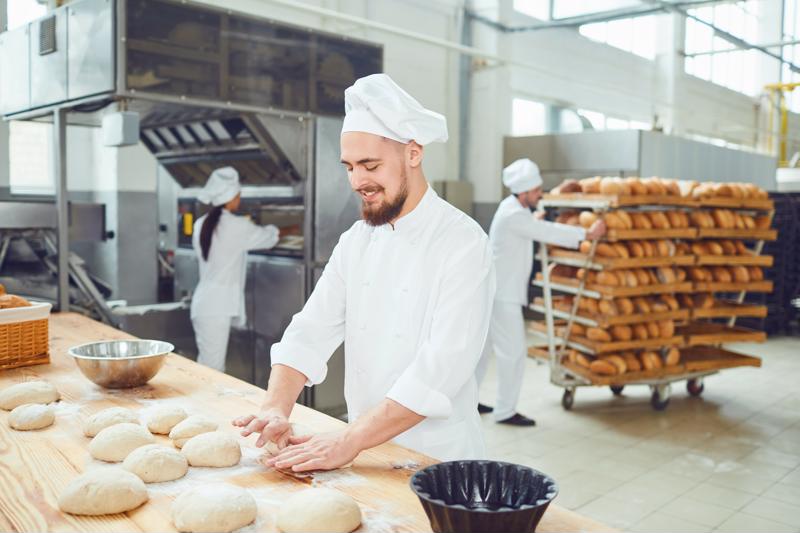Not every baker sets out with the goal of growing their bakery into a regional or even national presence. Some are perfectly content to maintain a cozy mom-and-pop shop. Some of the pastry students who have studied at Auguste Escoffier's online culinary school aspire to run bakeries from home.
But others have their sights set on growth. And it's hard not to weigh your options, when, say, you realize just how much people like your breads and pastries, or a national retailer catches wind of your baking bona fides and decides they want a slice of the pie. When business picks up, bakers face a tough question: Should I scale my operation to serve a wider customer base and potentially make a lot more money than I'm earning now?
There's a bit of an art to scaling a bakery, and the first thing you need to determine is if it's right for you. If you decide to scale your bakery, it's important to do it right so as not to risk being financially worse off than you were before.
To scale or not to scale?
If your bakery is profitable, you're having no problems paying the bills and the practice brings you satisfaction, then you're certainly under no obligation to scale. There's an unspoken assumption that looms over every business owner, which is that the goal is to grow the operation to be bigger and more profitable. But if you're comfortable, the markets seems steady, there are no apparent threats to your existence and you're happy, then good enough may in fact be good enough.
That said, there is the caveat of missed opportunity: Lines out the door every weekend and frequently running out of inventory might ultimately be a sign that your operation can't keep up with demand. This isn't an indication that you must scale, but it's worth weighing the pros and cons. It's also important to look ahead and really understand if your current success can be sustained, or if your business is just having a moment. This could be a chance to put more hooks into the market and set yourself up for longevity – for instance, by increasing your marketing budget and expanding your staff so you don't have to turn away as many customers.
You should not scale if:
- Your bakery is not growing, meaning your customer base isn't increasing. Scaling is not a remedy for poor sales.
- You're not profitable. If what you're doing doesn't work at its current scale, don't assume it will work at a bigger scale. Instead, focus on ways you can lower your costs without reducing output.
- You haven't considered everything involved – expenses for larger mixers, bigger rack ovens and other equipment upgrades, more staff, a bigger location, etc. Scaling may require upfront expenses.
 Scaling your bakery can be exciting – like watching your business baby grow up and make it big in the world.
Scaling your bakery can be exciting – like watching your business baby grow up and make it big in the world.Steps toward scaling
Remember, scaling a bakery is different than growing it. Growth entails a bigger operation, meaning your costs grow at the same pace as your earnings. Scaling is about improving net profits – and in baking, it's about doing it without sacrificing quality. Some of the avenues to achieving this include:
- Online markets: Online marketplaces like Goldbelly.com give artisanal bakers a new channel through which to sell their pastries without having to open a new chain.
- Digital technology: As you grow, handling all purchasing and accounting manually and keeping records on spreadsheets can be become cumbersome. Look into software that can help you streamline the number-crunching side of owning a business.
- Semi-automation: Consider investing in industrial-grade baking equipment; more bakeries are using robotics to help them automate the less skill-oriented tasks in backing, according to Bakemag.com.
- Marketing: Use social media to expand your online presence; encourage customers to leave reviews on Yelp and other business directories.
There's a lot more to scaling a bakery than can possibly fit into one blog post. However, everything you need to know can fit into the curriculum of our online pastry program, which teaches both the culinary and business arts of baking.

